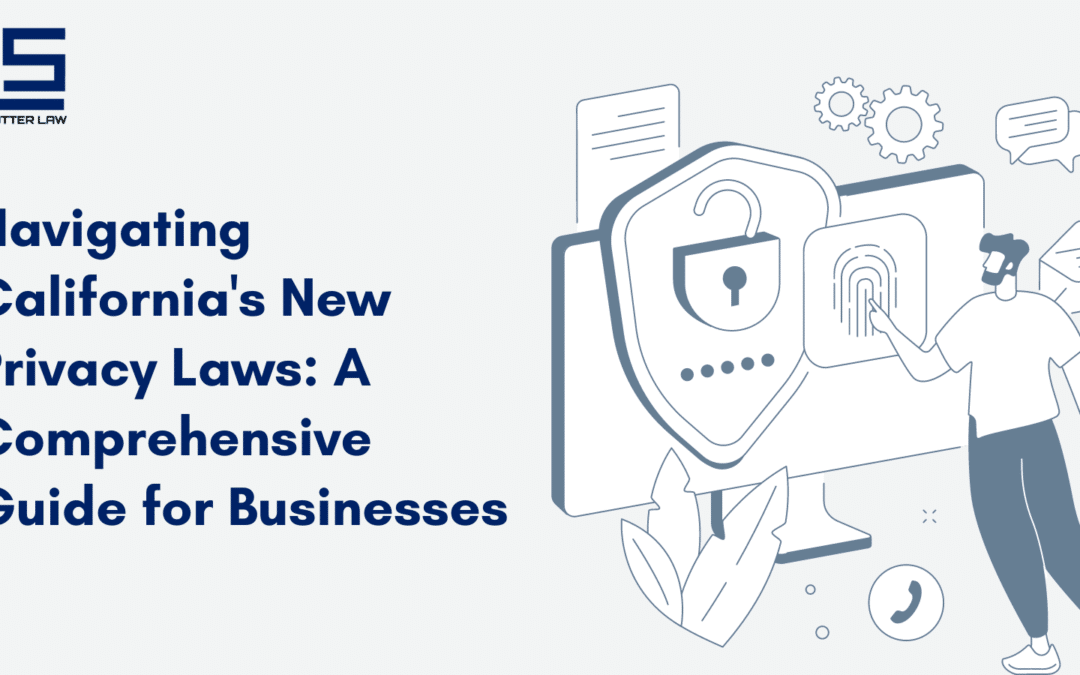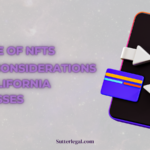Table of Contents
- Some of the key provisions include:
- Steps you should take include:
- Understanding Data Retention Limits
- Adopting New Notice Standards
- Staying Up-to-Date on Regulatory Guidance
- Leveraging Compliance Tools and Services
- Conclusion
California has long been at the forefront of privacy legislation in the United States, with laws like the California Consumer Privacy Act (CCPA) setting robust standards for consumer data protection. As California business attorney’s we work with hundreds of US and international startups to endure that their privacy policies comply with California standards.
However, with the recent passage of the California Privacy Rights Act (CPRA), businesses now face an even more complex regulatory environment when it comes to safeguarding personal information.
In this blog post, we’ll provide an in-depth overview of California’s strengthened privacy laws and outline key steps your business should take to remain compliant.
An Introduction to the CPRA The CPRA, which takes effect on January 1, 2023, represents a significant expansion of the existing CCPA framework.
It strengthens consumer rights, imposes additional obligations on businesses, and establishes a dedicated California Privacy Protection Agency to enforce the state’s privacy laws.
Some of the key provisions include:
- Expanded opt-out rights and restrictions on the use of sensitive personal information
- New obligations regarding data minimization and retention
- Requirements to conduct regular cybersecurity audits
- Increased penalties for non-compliance, including fines of up to $7,500 per violation
Assessing Your CPRA Compliance Needs While the CPRA maintains the CCPA’s general applicability to for-profit entities that collect California residents’ personal information, certain provisions only apply to businesses that specifically target services to California consumers or process large volumes of sensitive personal information.
However, most California businesses will still need to take action to comply.
Steps you should take include:
- Carefully reviewing the CPRA’s obligations and exemptions to determine coverage
- Updating privacy policies and notices to reflect new consumer rights
- Assessing current data collection, use, and retention practices against CPRA requirements
- Creating processes for responding to consumer rights requests
- Developing data minimization and cybersecurity audit programs
Specific CPRA Compliance Considerations Diving deeper into the CPRA framework, there are a few high-priority areas businesses should focus on to ensure compliance:
Managing Opt-Out Preference Signals The CPRA introduces restrictions on the use and sharing of “sensitive personal information” absent explicit consumer consent.
It also expands opt-out requirements for other categories like cross-context behavioral advertising. Businesses will need to establish technical mechanisms to collect and manage consumer opt-out preference signals.
Understanding Data Retention Limits
While the CCPA did not impose specific data retention limitations, the CPRA now requires businesses to establish, document, and comply with retention schedules aligned to the purposes for which information was collected. On-going storage should be limited to what is reasonably necessary.
Strengthening Cybersecurity Controls Reacting to several major security breaches, legislators incorporated explicit cybersecurity audit obligations into the CPRA. Businesses must implement appropriate controls like encryption, access limitations, anomaly detection, and data disposal procedures while also conducting risk assessments and testing.
Adopting New Notice Standards
The CPRA specifies additional details that must be included in privacy policies and notices at or before the point of data collection. This includes more information about retention periods, consumer rights, and verification processes. Simply appending CCPA notices will no longer suffice under the new requirements.
Responding to DSARs While the CCPA established consumer rights like data access and deletion, the CPRA further standardizes the request and verification process for businesses. Specific response timelines are mandated alongside the required confirmation of completion. The dedicated privacy agency will also provide templates to streamline compliance.
Staying Up-to-Date on Regulatory Guidance
As the CPRA continues to be implemented over 2023, California’s privacy regulators will release important guidance documents to clarify obligations and outline best practices. Businesses should monitor these publications carefully to calibrate their compliance programs accordingly.
Leveraging Compliance Tools and Services
Given the complexity of operationalizing expanded privacy rights, leveraging purpose-built technology solutions and expert legal advisors can help ease the compliance burden for businesses required to adhere to California’s new standards.
Conclusion
With the CPRA enhancing consumer protections and enforcement, ongoing vigilance and adaptation will be imperative for businesses seeking to navigate California’s stringent privacy framework.
However, by taking proactive steps like conducting compliance assessments, updating data practices and security controls, and monitoring regulations, organizations can effectively position themselves to comply with the state’s expanding laws.
If you have questions about CPRA requirements or want additional guidance on crafting a comprehensive compliance plan Get a Free Consultation from Sutter Law’s experienced business law and privacy attorneys.






